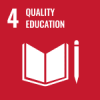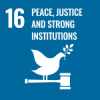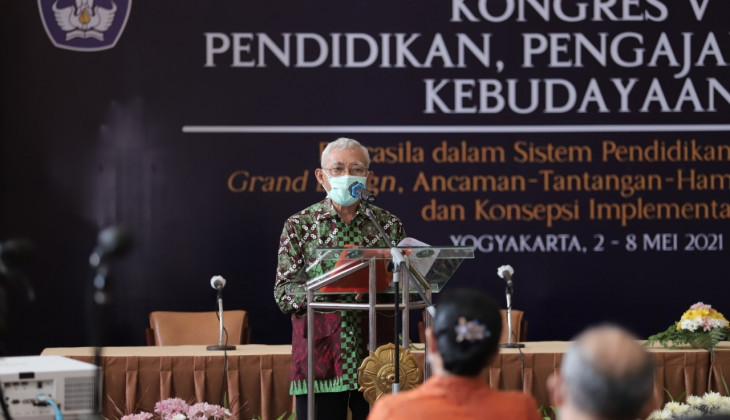The Fifth Congress of Education, Teaching, and Culture (PPK) was closed on Saturday (8/5). At the last plenary meeting held at the UGM Senate Hall yesterday, the conclusions and recommendations of the results of the entire event process, both pre-congress and the congress itself, were presented.
Prof. Sutaryo, the initiator of the PPK Congress, who read the conclusion said that Pancasila must always exist in all legislation, including the National Education System regulation. According to him, the mission of educating the nation in education can only be achieved if there is harmony at 5 levels: the President, Mendikbud-Ristek, regional heads, regional education offices, and teachers.
Sutaryo explained that formal education (from PAUD to university), informal (family), and non-formal (social media, religion, social and culture, scouts, PKK, courses, etc.) are the best means of instilling and civilizing Pancasila.
“Those three, which are often called the education Trisentra, have disharmony and inequality because the emphasis of education is more focused on formal education alone. Not to mention the lack of quality and quantity of Pancasila teachers or lecturers nationally is a separate obstacle in the Pancasila teaching process,” said Sutaryo.
Considering these problems several recommendations have been agreed upon by the congress participants. First, the government and the DPR need to immediately revise Law No. 20 th. 2003 concerning the National Education System and its derivative regulations due to inconsistencies with the constitutional mandate. Second, Pancasila must be presented as a definitive lesson or subject at every level of education. Pancasila must stand alone as a subject or course instead of being integrated with civic education.
Third, Pancasila learning should be protected from the intervention of practical political interests and delivered following scientific or academic principles. Fourth, education politics must balance character, intellectual and physical education, as well as the role of the tri center of education. Finally, it is necessary to add Pancasila teachers or lecturers by collaborating with institutions that can provide education for teachers or lecturers.
The plenary meeting was then closed with a brief speech delivered by representatives of the host of the V KDP Congress, namely Prof. Djagal Wiseso Marseno, UGM Vice-Chancellor for Education, Teaching, and Student Affairs. He illustrates the recent level of Indonesia’s national resilience.
Based on data from the National Resilience Institute for the Republic of Indonesia, Djagal said that during the 2010-2016 period, Indonesia’s national resilience was “in yellow”, meaning it was less resilient. Then it slightly improved in the next period, which shifted to green. However, in the ideology category as one of the components of national resilience, from 2010 to 2020 it continues to be yellow.
These data show that our country is losing its ideology. In fact, according to Djagal, the state will become fragile when it loses its ideals of being a state and nation. This is also supported by other data from Pennsylvania University, through The Fund for Peace, which places Indonesia in yellow and among the fragility index list of countries in the world.
“I agree that education is the most effective way to socialize Pancasila. Indonesianizing Pancasila, pancasilazing Indonesia, this is very important,” he concluded.
Source: https://www.ugm.ac.id/id/berita/21124-kongres-v-ppk-hasilkan-rekomendasi-pancasila-dalam-sisdiknas



